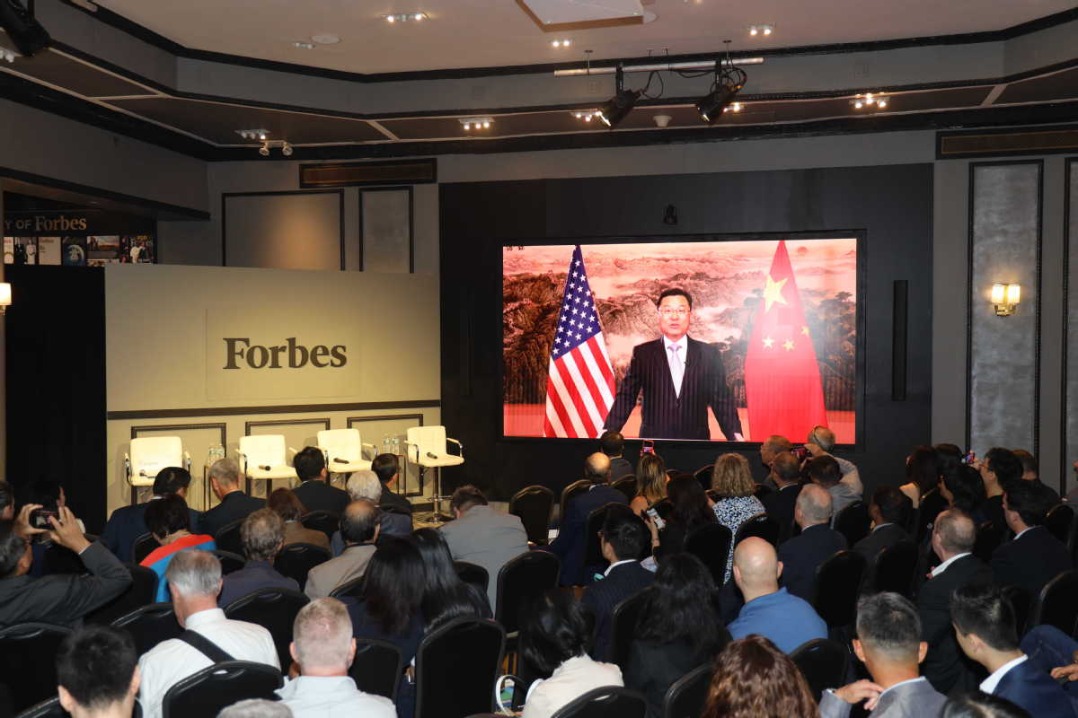UK likely to take more pragmatic approach toward ties

With a new government and Cabinet in place in Britain, a reset of relations between China and the United Kingdom is likely, experts said, while calling upon Downing Street to take a pragmatic and realistic approach toward mending ties with Beijing.
The UK elected Keir Starmer as prime minister in early July, ending 14 years of Conservative rule.
The Labour government outlined its China policy in its election manifesto before the country went to polls on July 4. "After 14 years of damaging Conservative inconsistency over China, Labour will bring a long-term and strategic approach to managing our relations," the manifesto said.
"We will cooperate where we can, compete where we need to, and challenge where we must," it added.
Starmer has promised a "full audit" of the UK's relationship with China within 100 days of assuming office. It could take as much as a year to carry out the audit, an article in Politico said.
The Labour government will largely follow the China policy of the last administration, but is "likely to see minor adjustments in fields such as economy and trade", Jian Junbo, deputy director of the Center for China-Europe Relations at Fudan University's Institute of International Studies, told China Daily. "The Labour government might adopt a more pragmatic approach toward China. Cooperation in climate change and investment could see potential growth."
China is the UK's largest trading partner in Asia and the UK is China's third-largest trading partner in Europe, official data show.
Former UK prime minister David Cameron sought to create a "golden era" of engagement with China in 2015, but relations swung to overt hostility under Liz Truss and to confused ambiguity under Rishi Sunak, the newly appointed UK Foreign Secretary David Lammy wrote in an article, titled The Case for Progressive Realism, that was published in Foreign Affairs in April.
The UK must "adopt a more consistent strategy" that would recognize that Beijing "poses a systemic challenge for British interests" and recognize China's importance to the British economy and the need to work with China on matters of global concern, Lammy wrote.
Zheng Zeguang, China's ambassador to the UK, said it is a critical time now for China-UK relations, with both new opportunities and new challenges.
Fifty-two years of diplomatic relations between China and the UK have proved that cooperation serves both sides and the world, Zheng said at an event organized for the British business community on July 30.
Wang Zikui, an assistant researcher of UK politics at the Shanghai Academy of Social Sciences' Institute of International Relations, told China Daily, "A pragmatic and realistic approach is expected from the Starmer government."
"China and the UK can see the possibility of cooperation on issues that do not involve security or sensitive topics. Clean energy, artificial intelligence and education could be areas of shared interest," Wang said. "Cultural and people-to-people exchanges should be further enhanced to bolster ties."
Noting the "special relationship "between the UK and the United States, Wang said the UK will enhance its role as a "knot" in strengthening the bond between the US and the European Union.
The UK will keep close ties with the US and the EU while exploring relations with China, Wang said.
"The upcoming US election could further complicate Britain's China policy as the UK is a core part of the US alliance system," Wang said. "Whoever ascends to the White House will align Britain in consistency with its geostrategic goals."
Jian, of Fudan University's Institute of International Studies, said, "Global geopolitical shifts, as well as the US-UK and EU-UK relations, will influence the trajectory of China-UK relations."
Starmer assumed office as the country grappled with a series of economic and societal challenges.
The UK's GDP fell for two quarters in a row in the second half of 2023. Overcrowded prisons are close to running out of space and the National Health Service has been beset by strikes.
UK Chancellor of the Exchequer Rachel Reeves said at the end of July that public finances face a projected overspend of 22 billion pounds ($28 billion) inherited from the previous administration and warned of "difficult decisions "ahead.
The Labour government has laid out five priority missions that include kick-starting economic growth, developing green development and modernizing the NHS.

































